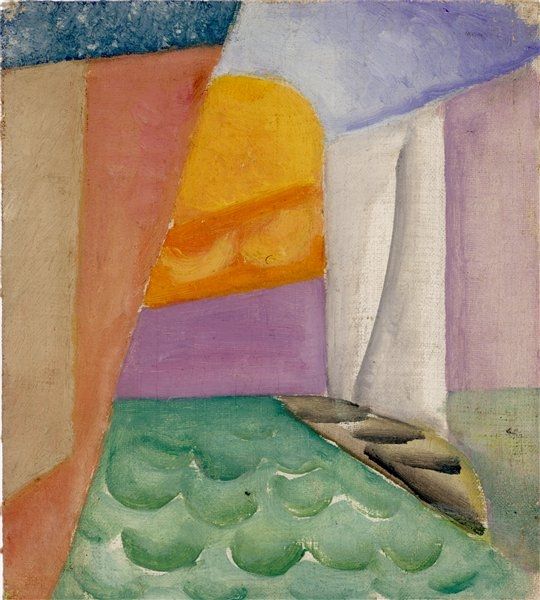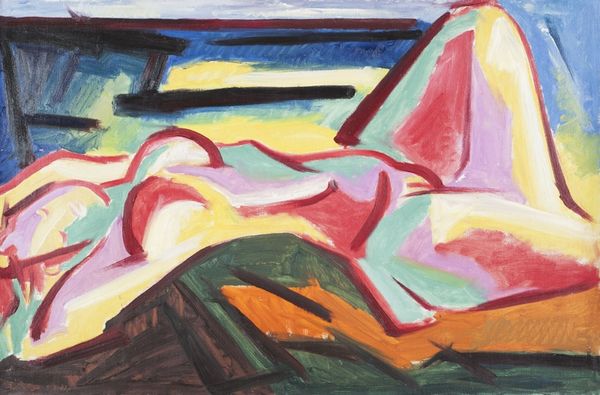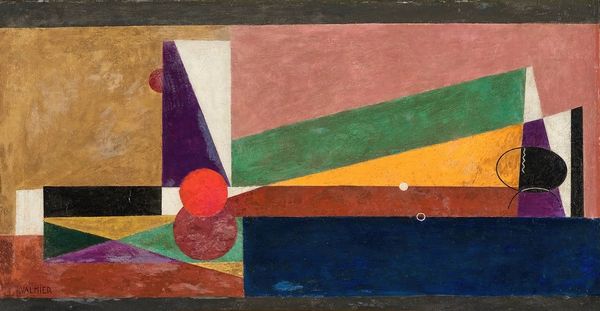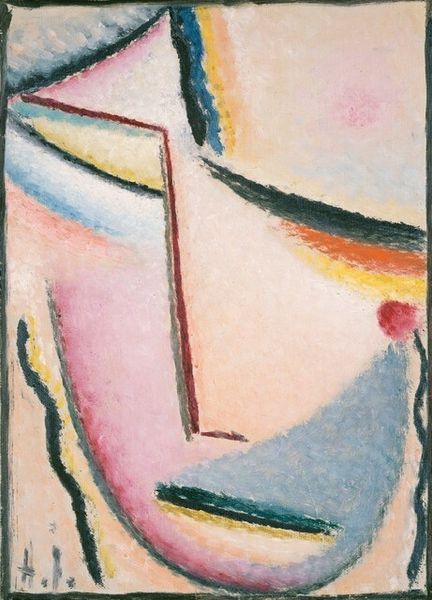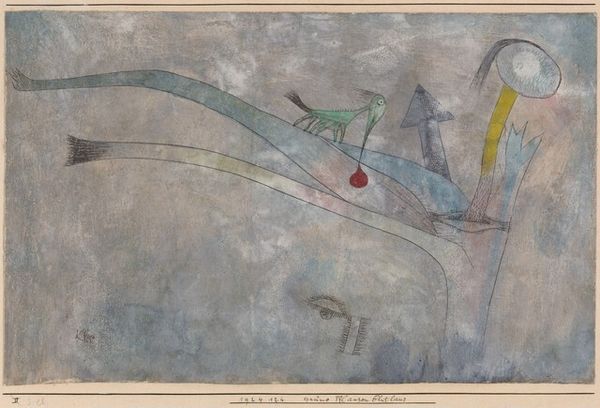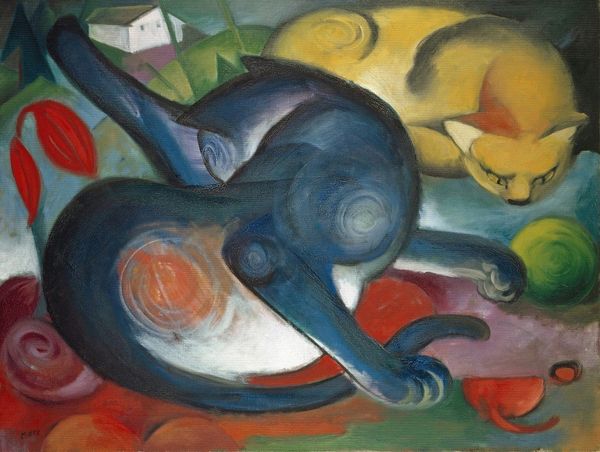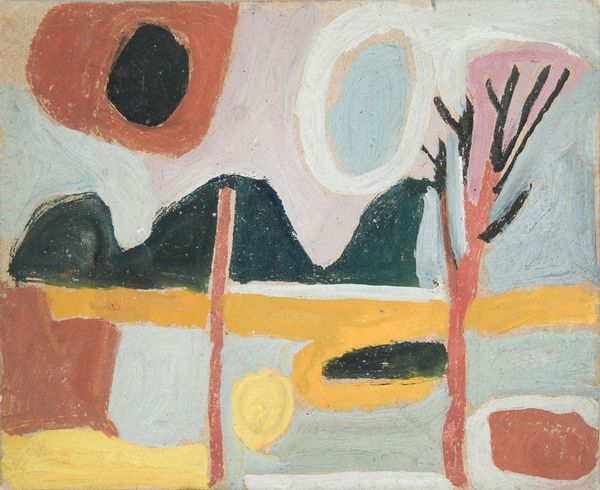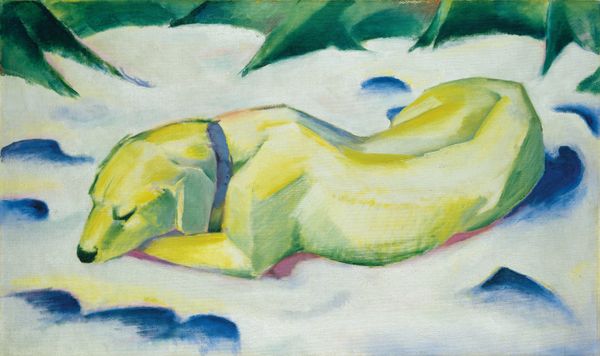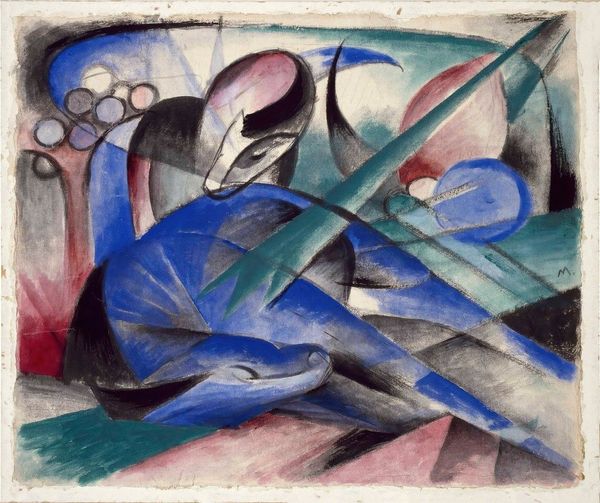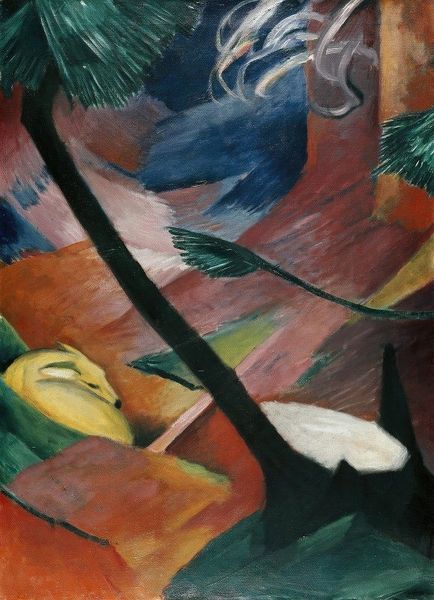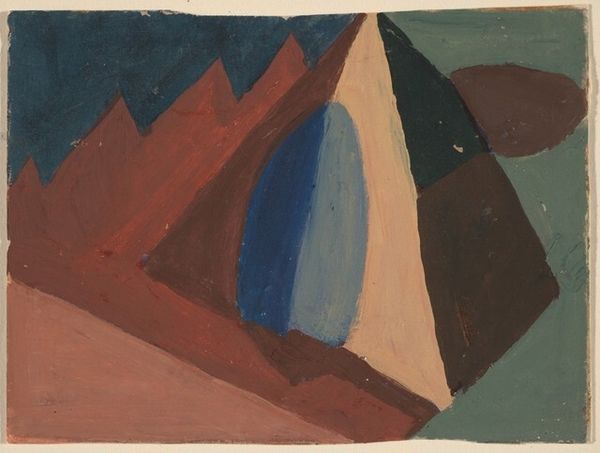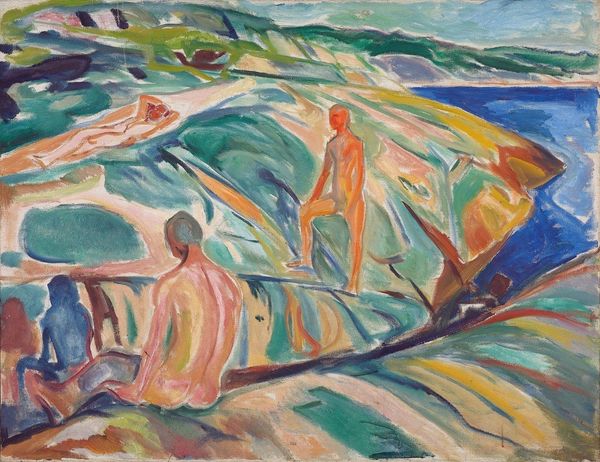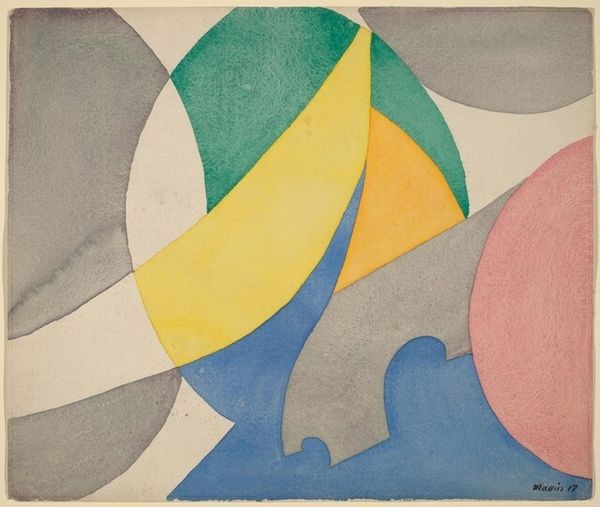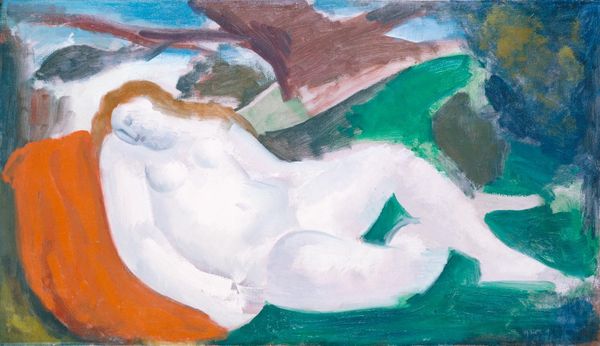
painting, oil-paint
#
cubism
#
painting
#
oil-paint
#
landscape
#
oil painting
#
geometric
#
modernism
Copyright: Public domain US
Curator: Here we have Vytautas Kairiukstis's "Ant Ežero," created in 1922. Kairiukstis, a Lithuanian artist, rendered this modernist oil painting with distinctive Cubist leanings. Editor: It looks like serenity distilled. A breezy day at sea, captured in pastel blocks of color. I find it strangely calming; the simplification lends a peaceful feeling. Curator: The composition, with its clear geometric forms, guides the viewer’s eye. Note the use of overlapping planes and simplified shapes to create depth and perspective. It's quite different from traditional landscape painting. The color choices too; they vibrate against one another, no? Editor: They certainly do. That rosy horizon contrasted with the cool blues... it’s visually quite active, a dreamlike vibration on canvas. The red sail in the background hints at more stories. What kind of mood was Kairiukstis in? Curator: Hard to say with certainty. As a Modernist, Kairiukstis prioritised form and the objective experience. One reads in the clean lines, stark geometry, and somewhat abstracted nautical theme, perhaps the optimism felt during the interwar period in Lithuania. The work is very controlled and ordered in its rendering. Editor: Ordered but hopeful. I still can't help imagining myself there, aboard the ship, feeling the cool breeze, despite it being almost a century ago, with world events as volatile then as they are now. There is such freedom suggested in his lines! Even Cubism bends toward joy. Curator: I appreciate how you connect emotionally with the piece. However, remember to observe the aesthetic decisions, which show his careful manipulation of the canvas itself to convey particular impressions. Editor: I know, I know; but art needs a soul to appreciate the sum of its parts! But perhaps that’s my painter’s bias talking, wouldn’t you agree? Curator: Yes, likely so, still I can appreciate your perspective here, as we view the convergence of technique and emotion, which defines our human experience in any period, interwar or not.
Comments
No comments
Be the first to comment and join the conversation on the ultimate creative platform.
